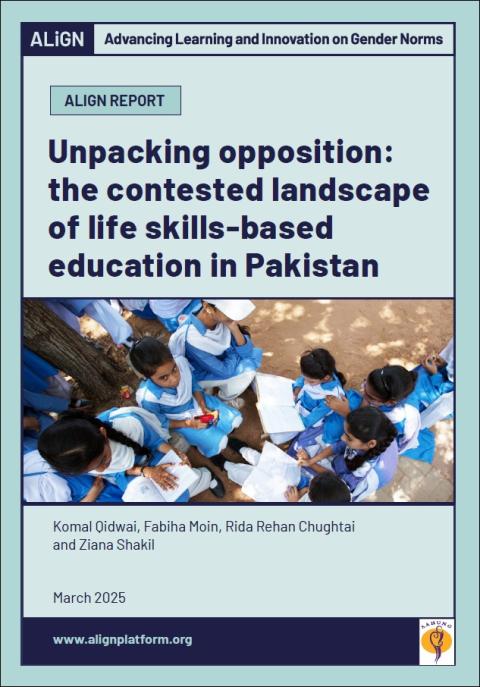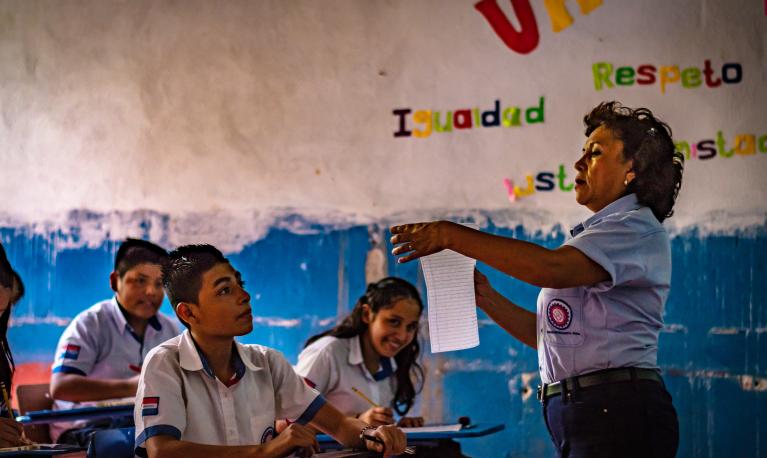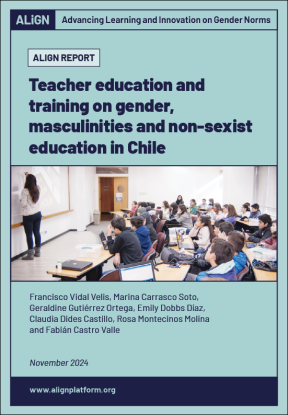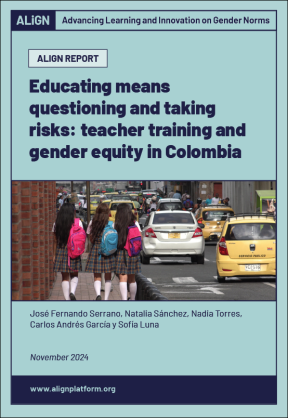- Report
- 26 March 2025
Unpacking opposition: the contested landscape of life skills-based education in Pakistan
- Author: Komal Qidwai, Fabiha Moin, Rida Rehan Chughtai, Ziana Shakil

This report examines the challenges and strategies involved in implementing life skills-based education (LSBE) in Pakistan, focusing on how gender-restrictive, or oppositional, actors have influenced the curriculum’s content and acceptability. High gender inequality, the strong influence of religious leaders and religious political parties, and widespread conservative social norms, have meant that the implementation of LSBE is uneven and built on localised negotiations.
This report offers insights for advocacy organisations, policy-makers and practitioners striving to integrate inclusive, rights-based education into curricula while navigating on-going sociopolitical resistance.
Key messages
- LSBE has expanded in Pakistan, but resistance has shifted from outright opposition to control over its framing and delivery. While Sindh remains the only province to formally integrate LSBE into the secondary school curriculum, NGOs have extended its reach nationwide. However, opposition has evolved — not through rejection, but by impeding implementation.
- Opposition to LSBE is not centrally coordinated but embedded in broader anxieties about shifting social and gender norms. Unlike contexts where anti-gender movements lead resistance, opposition in Pakistan is diffuse, rooted in patriarchal norms and religious interpretations. Few actors call for LSBE’s removal; instead, they seek to modify its content to fit conservative expectations.
- LSBE is at risk of being diluted into a generic life skills framework. As LSBE gains wider acceptance, its core SRHR content is increasingly being sidelined in favour of general communication and personal development skills. This reflects a global trend where progressive curricula are reshaped to fit conservative expectations rather than being eliminated outright.
- Preventing dilution means establishing minimum content and delivery standards to ensure SRHR topics remain central. Expanding beyond the child protection framing is also critical, as this approach has constrained LSBE’s ability to address bodily autonomy and power dynamics. Long-term, flexible funding is needed to sustain advocacy beyond short-term donor priorities.
- Countries / Regions:
- Pakistan
Related resources
2 November 2020

Blog
19 December 2024

Blog
5 December 2024

Report
20 November 2024

Report
13 November 2024
